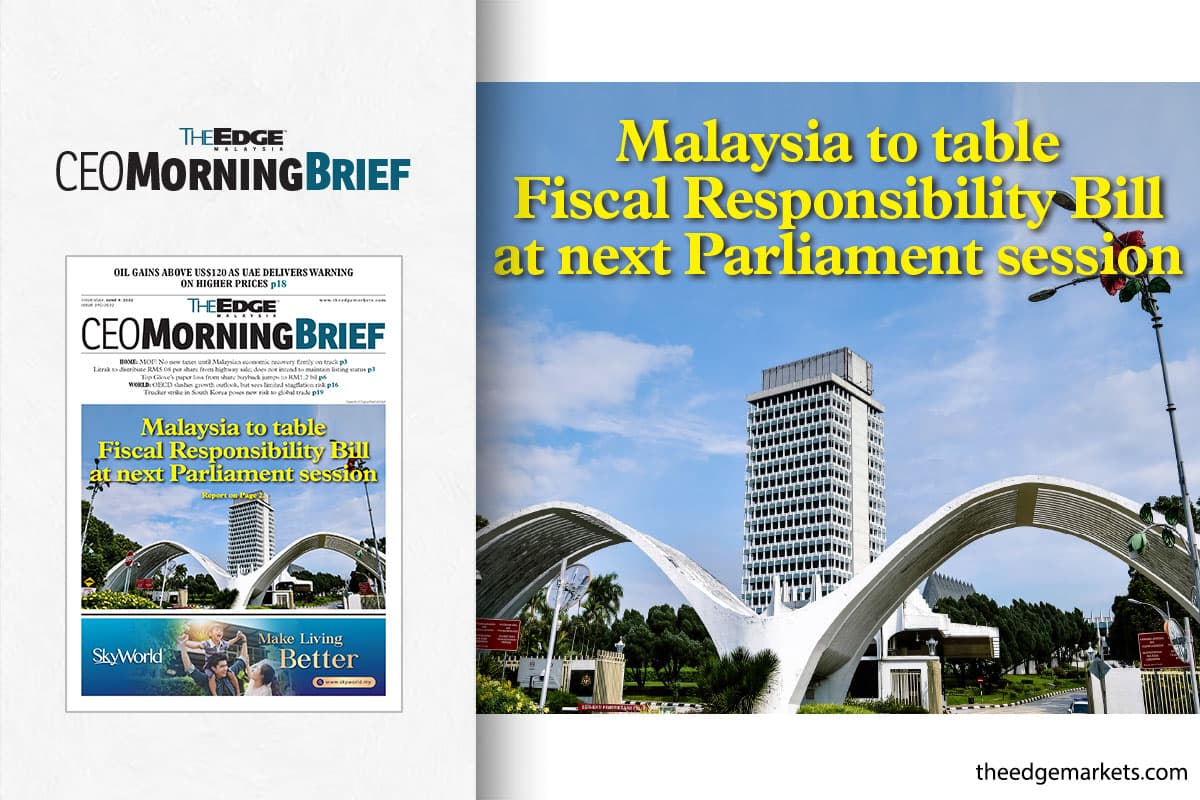
KUALA LUMPUR (June 8): The Ministry of Finance (MoF) is looking at introducing the Fiscal Responsibility Act by tabling the bill at the Malaysian Parliament’s next session — scheduled to start on July 18 — to boost tax collection, which will be crucial to replenish the nation's coffers to finance the nation’s developmental and longer-term reform plans, according to Finance Minister Tengku Datuk Seri Zafrul Tengku Abdul Aziz on Wednesday (June 8).
Tengku Zafrul, who officiated at the Malaysian Institute of Accountants (MIA) International Accountants Conference 2022, which is held virtually on Wednesday and Thursday, said the proposed Fiscal Responsibility Act aims to "broaden our tax base — including taxing the shadow economy — and improve tax compliance and administration towards helping boost tax collection”.
Meanwhile, Corporate Malaysia needs to make the transition to environmental, social, and governance (ESG)-focused operations quickly or risk being excluded from future business opportunities, according to Tengku Zafrul.
"A study by a global bank in 2021 revealed that by 2025, 70% of multinational corporations (MNCs) will remove suppliers that endanger their carbon transition plan. And these MNCs are expected to exclude 35% of their current suppliers as they transition away from carbon,” he said.
In short, if Malaysian companies are part of the MNC ecosystem, they risk being excluded from future business opportunities if they do not start to adapt their businesses to ESG practices, Tengku Zafrul said.
The small and medium enterprise (SME) segment is deemed one of the key building blocks to achieve Malaysia's ESG aspirations and net zero-carbon goal by 2050, according to Tengku Zafrul.
Tengku Zafrul said the MoF is committed to developing the capacity of SMEs because the sector is a key contributor to the Malaysian economy as it employs almost 50% of the country’s workforce.
Initiatives to enable SMEs to embrace ESG principles include the Principles of Good Governance for Government-Linked Investment Companies and Bank Negara Malaysia’s RM1 billion Low Carbon Transition Facility, according to him.
Looking back, Tengku Zafrul said ESG risks have been further exacerbated by Covid-19, which in the last two years had set back many developing countries’ progress by at least a decade.
"And what about Malaysia? In the last two years, the MoF has been responsive to the nation’s pressing needs, particularly through the eight stimulus packages valued at RM530 billion and two expansionary budgets in 2021 and 2022.
"To future-proof ourselves and the nation, today I would like to focus on MoF's responsible and reformist stand, and how the accounting profession can support this national aspiration to help the government re-set the nation on the right [fiscal] track to chart Malaysia’s sustainability journey and build our people and businesses’ resilience.
"To achieve this, we must become more agile and competent, as well as embrace and incorporate ESG considerations into our policy formulation and business operations,” Tengku Zafrul said.
To receive CEO Morning Brief please click here.